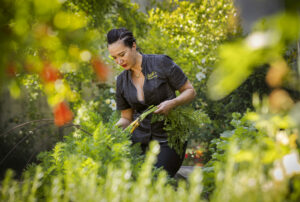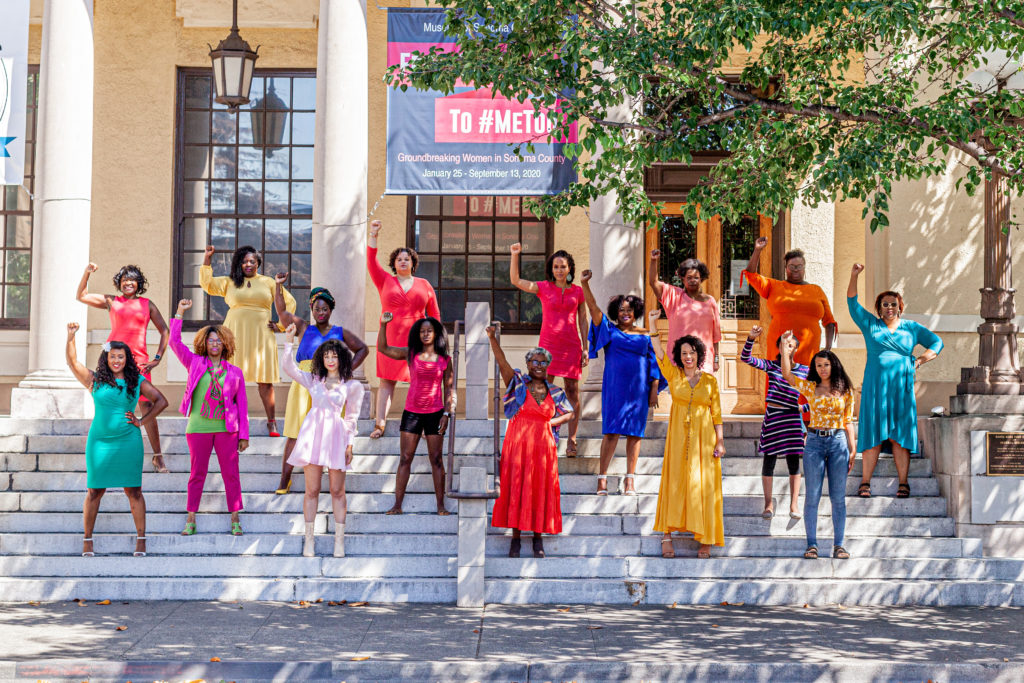With wildfires burning throughout the North Bay, our nerves — already frayed by the pandemic, previous fires and a polarized political climate — are being further strained.
In trying times like these, when many of our regular ways of connecting socially and taking care of ourselves have become limited, it can be tempting “to shut one’s self off completely,” says Sonoma County marriage and family therapist Gayle Whitlock.
“What’s apparent right now is that people are feeling lonely. They want to connect but in a safe way. Our society has become so divisive,” says Whitlock, who co-facilitated a virtual healing circle for Black women just days after the recent fires broke out.
While the Sonoma County therapist serves clients of all races, her aim with the healing circle was to create a space in which Black women could connect with one another and “show up unapologetically Black” without being censored and without censoring themselves.
The lessons from this healing circle can be useful for anyone, says Whitlock. For example, one of the key coping tools she recommends during difficult times is “speaking your truth.”
But communicating freely and openly can be a challenge in a climate of clashing views. Whitlock suggests seeking out opportunities to share your thoughts and feelings with those who will listen and understand, while limiting exposure to “toxic” information and people, and making small changes that make a difference. Here are a few more recommendations.
Change what you can
Taking care of details you can control can help combat a sense of powerlessness. As an example, Whitlock recommends implementing fire safety plans like having a “go bag” packed or keeping the cat carrier by the door in the event of an evacuation. To endure power outages, she suggests having healthy shelf-stable food like fruit and nuts on hand to avoid waste. (Find more useful tips for coping with fire stress here).
Focus on the positive in the moment
Even as your heart goes out to those who face evacuation and great personal loss, it’s helpful to focus on what’s positive in your own experience. Appreciating that you are safe, in this very moment, can be a way to keep you from feeling overwhelmed and taking on the world’s burdens, says Whitlock.
Look for ways to move forward
Acknowledge that bad things happen and that they are going to happen. It’s important to allow yourself to be angry and to vent, but remaining in an exasperated state for too long can be harmful to you and those around you. Try to take a look at what’s going on inside: check in with yourself and ask yourself how you can have a positive impact on other people. If we know that the intention behind our actions is to “generate more peace than discord,” we can feel comfortable with what we do, says Whitlock.
Establish personal boundaries
If someone says or does something that is hurtful, you have a right to protect and stand up for yourself. Notice the “little internal nudge when someone is pushing on a boundary,” says Whitlock. While we won’t always agree with everyone, we can still maintain good and healthy relationships if they are built on mutual respect and communication.
Take a break from news and social media
“Do you need to be consuming all the viewpoints that are put out there on social media?,” asks Whitlock. In many ways, scrolling our social media feeds has become addictive. Whitlock recommends taking social media breaks and limiting your news intake. As for herself, she prefers “less hyperbolic sources with less viewpoints.”
Adjust your exercise
Exercise is an essential self-care tool. Under normal circumstances, Whitlock unwinds from a day of work by exercising at the gym. Now, she puts on her mask and takes a short walk if the smoke isn’t too bad. She’ll also stretch at home. (There are many ways you can adjust your exercise routine to both suit your needs and the conditions we find ourselves in. For example, you can find exercise and yoga videos online for all fitness levels, as well as stretching routines.)
Get creative about helping others
Volunteering is a great way to get out of your own mental rut, but social distance requirements have limited the opportunities to help others in person. But there are still ways to be of service: Check in with a religious community or organization that has volunteer opportunities, recommends Whitlock, “An older member may need a call.”
Or you could counsel a younger person on how to positively engage in the upcoming election. “Don’t be negative or judgmental or demeaning,” she warns, “but tell them, ‘I see how you can feel that way — you can be empowered and speak your truth.’”
Gayle Whitlock is a Licensed Marriage and Family Therapist. New Leaf Counseling Services, 707-387-4146, newleafcounselingservices.org














